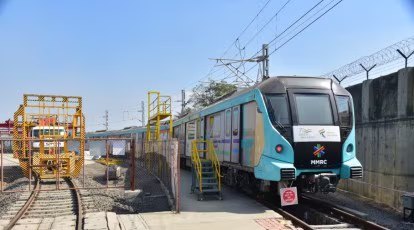Mumbai, a city synonymous with traffic congestion, is poised to enter a new era of urban mobility with the imminent launch of Metro Line 3. The first phase of the project, connecting Aarey Colony to Bandra-Kurla Complex (BKC), is set to be inaugurated in October. The Mumbai Metro Rail Corporation Ltd (MMRCL) has announced an affordable fare structure for the initial phase, with a minimum fare of Rs 10 and a maximum of Rs 50.
Once the entire line, extending up to Cuffe Parade, becomes operational, the maximum fare will increase to Rs 70. The 12.4km Aarey-BKC stretch, comprising 10 stations, will provide seamless connectivity to the international and domestic airports, as well as the existing Metro Line 1. The launch of Metro 3 is expected to significantly alleviate traffic congestion in the city, reducing daily vehicular trips by 6.65 lakh and lowering fuel consumption by 3.54 lakh liters per day. The MMRCL has introduced modern ticketing options, including QR codes and the National Common Mobility Card (NCMC), to enhance passenger convenience.
The NCMC system, which allows for seamless payments across various transportation modes, is expected to be fully operational within a month of the launch. The launch of Metro Line 3 marks a significant milestone in Mumbai’s infrastructure development. It is expected to attract a substantial ridership, with an estimated 4.5 lakh passengers during the first phase. The project’s second phase, extending from Dharavi to Cuffe Parade, is scheduled for completion by March-April. The introduction of Metro 3 is a testament to Mumbai’s commitment to sustainable urban development. By providing a reliable and efficient public transportation system, the city aims to reduce its carbon footprint and improve the quality of life for its residents.




